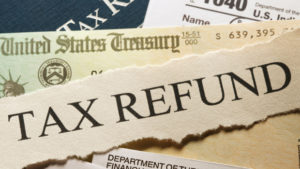
WIPE OUT INCOME TAX DEBT WITH BANKRUPTCY

While the majority of taxes cannot be eliminated through bankruptcy, some can. The bankruptcy experts at Burr Law Office can examine your case to see if your tax debt can be eliminated. Though not simple, filing for Chapter 7 bankruptcy and finding out if your debts qualify for discharge may eliminate some tax debt..
You can wipe out or discharge tax debt by filing Chapter 7 bankruptcy only if all of the following conditions are met:
- The debt is federal or state income tax debt. Other taxes, such as fraud penalties or payroll taxes, cannot be eliminated through bankruptcy. In other words, the debt needs to be a regular tax payment that you owed either the State of Wisconsin or the federal government.
- You did not willfully evade paying your taxes or file a fraudulent return. Bankruptcy will not help in these circumstances. Your actions need to have been lawful.
- Your tax debt is at least three years old. The original tax return must have been due at least three years prior in order to effectively file for bankruptcy. So if you were to file for bankruptcy in April 2020, for instance, this would apply to your 2017 taxes that were due April 15, 2018.
- You filed a tax return at least two years before filing for bankruptcy. To eliminate a tax debt, a return for that debt must have been filed. Generally, if your extensions expired and you filed late, you have not filed a true return and will not be able to eliminate the tax debt.
- The tax debt must have been assessed by the IRS 240 or more days before you file for bankruptcy, or must not have been assessed yet. This is called the “240 day rule.” If the IRS suspended collection efforts due to a compromise or previous filing, this deadline may be extended.
Tax Liens & Bankruptcy
Tax debt and tax liens are different things. Tax debt is simply money that you owe either the State of Michigan or the IRS. A tax lien is a legal judgment secured against your property to satisfy a tax obligation that you owe the state or federal government. Should you qualify for Chapter 7 bankruptcy, and meet all of the above criteria, unfortunately bankruptcy will not eliminate prior tax liens.
Your obligation to pay off the debt will be discharged, but not eliminated. However, the IRS will no longer be able to go after your income or bank account.
However if a tax lien was filed before you filed for bankruptcy, the lien will remain on the property. If you ever want to sell your property, you will have to pay off the lien before you can do so.
Do you have other tax related, or bankruptcy questions? Let us know. We’re happy to help.
The experienced attorneys of Firebaugh & Andrews are here to answer your bankruptcy questions. Give us a call at 734-299-7222 today for your free evaluation.





 get a free consultation
get a free consultation
Comments (0)